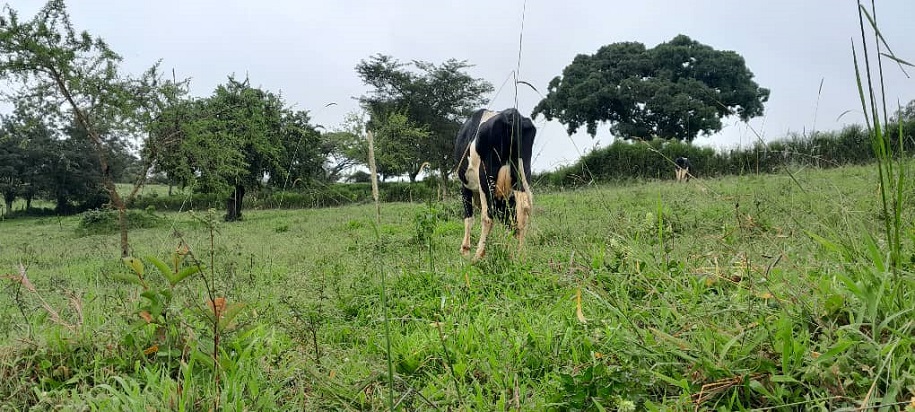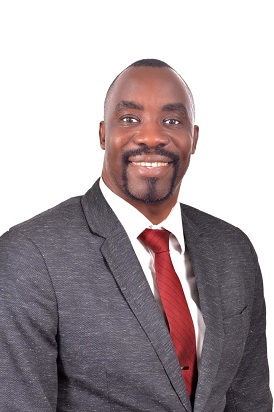The new EU law could affect Uganda’s coffee exports
The directive on human rights and environment practices against big coffee buyers in Europe could impact on the coffee sub sector in Uganda and other producing countries in Africa, Pacific, Asia and the Caribbean.
The law says that any European company worth US$ 500 million or more that is sourcing coffee from Uganda or anywhere in the world has to show that they have done what they call Corporate Sustainability Due Diligence to ensure that there is no element of human rights abuse, forced labour, child labour or degradation of the environment along the supply chain.
“This means that they have looked through the supply chain to see whether there are human rights abuses; child labour, or forced labour in the value chain. They must ensure that children aren’t forced to work and people are working, against their will, in the coffee value chain. On the environment side, whether you are respecting the environment (cutting, burning trees to plant coffee), anything with a negative impact on the environment (has to be looked into). If the company (in the EU) cannot prove that it has done due diligence, identified the risks, and is working on them, then it can be fined. This is the regulation,” Lawrence Attipoe told Business Focus in an exclusive interview on the sidelines of an engagement with the coffee stakeholders held recently at Fairway Hotel in Kampala.
Mr Attipoe is the National Coordinator, Alliances for Action Programmes Ghana Sector and Enterprise Competitiveness in the Division of Enterprises and Institutions at International Trade Centre.
The regulation is not targeting Africans, he clarified. “But, to the extent that we are supplying to that company, if that company is punished because human rights abuses are detected in our value chain, they will stop buying from us. So, the targeting is indirect. There is no Ugandan company that is going to be targeted. The company has to be an EU company. The company must have assessed the risks in the supply chain and you have taken action to correct them and you are correcting them and you are reporting them,” he said.
He appealed to the coffee sector players to ensure that they protect the environment and respect human rights.
“Ask yourself, am I supplying the EU company with this particular threshold? You should be worried because if they can prove that in this particular period, there was human rights violations and they can trace it to the supply chain, then the company will be fined and that company will not come to Uganda to buy (coffee) because there is human rights abuses. So, we need to analyze and assess ourselves and say, if we need to sell to the EU, what can we do [to make that happen], that’s all,” he said.
However, Dr. Emmanuel Iyamulemye, the Managing Director at Uganda Coffee Development Authority (UCDA) says there is still time to have input in that legislation and contextualize the coffee sector in Uganda. He adds that 90% of the farmers in Uganda are smallholder farmers.
“How do you trace to see how a farmer is caring about the environment, climate change? The good news for us in the coffee sector is that we have been promoting coffee as a forest crop. Plant coffee as you plant shade trees. Plant coffee as you do water harvesting. Plant coffee as you plant cover crops like beans and soybeans, so it’s something that we already know and we have been doing. We are not too worried about the compliance,” Dr. Iyamulemye said.
He is however worried about the impact on the side of the trader.
“The only thing we are worried about is a company which is in Europe and buys from about 200 farmers; picking one bag here, taking 10 bags there, picking 50 bags there and they all go in a truck. How do you know which bag came from who and how this farmer observed what they want? So, that kind of complexity of the marketing system in Uganda is what we want to get to the European Parliament to consider in their context. Can we do maybe have one verification and monitor it for a period of three years so that it is not every consignment because a farmer can sell up to 10 traders in one season. So, it becomes a bit complicated. This is the first stage. Of course the good news also is that commitment from the EU to make sure that it doesn’t affect the business here and if it is an additional cost, it will be on the farmer and if it goes to the farmer, the farmer will be reducing on the income and it will be now taking more people in the poverty line which is not the intention. The intention is targeting the big companies so that in the big picture, the whole world is looking at climate change mitigation. It’s actually part of the green deal. Where in the green deal they are looking at deforestation;if you are cutting trees and planting coffee, the companies in Europe will be boycotting that coffee. But we have to customize this regulation in the context of Uganda. Asian, Pacific and Caribbean countries are also facing the same situation like Uganda. They are willing to engage with the EU,” Dr. Iyamulemye said.
Escipion Joaquin Oliveira Gomez from the Organization of Africa, Caribbean and Pacific States (OACPS) told Business Focus that Uganda has good systems.
“Uganda has UCDA and MAAIF, and you protect the environment. You don’t have child labour problems, but it’s hard to prove. So, the main challenge is documentation but also traceability of this product. The fines should not be borne by the farmer who is already struggling because coffee prices are very low. So, how do we ensure that we have continued market access to the traditional markets that we have? Traceability will have a cost. The cost is to be incurred by the buyer, we don’t want them to transfer that cost downstream. With enhanced systems, the institutions will be stronger. We want to see Uganda sustain its consumption but also value addition. Ugandans roasting coffee for Africans. We cannot continue selling huge quantities at low prices. We have to have an alliance of African coffee producers. This is a wake-up call. There is little knowledge about the regulation. We shall work together to ensure that you don’t find yourself under the system,” he said.
However, Joseph Nkandu, the Executive Director of the National Union of Coffee Agribusiness and Farm Enterprises (NUCAFE) says the regulation is not new.
“If a farmer has trees planted in his coffee farm that is an example of a climate-smart measure or practice to ensure that the environment is kept well. That is environmental conservation practice. Then, they are trying to enhance the productivity of the coffee… Therefore, such a farmer is addressing sustainability. When the farmers come together, there is cohesiveness. There are common practices they are implementing. So, these farmers are ahead of the game. And this is what NUCAFE is already promoting. Therefore, it shouldn’t be a law that is simply imposed but a law which has found many of the farmers and farm organizations that are implementing climate smart farming. We need also to recognize the laws that are in the country. They should benchmark on the already existing laws,” Nkandu said.
He however warned of the cost associated with sustainability.
“But one should recognize the fact that to implement a sustainability-driven business model, you have to incur more costs at the beginning which money may not be readily available at the time. In the long term, it is cheaper. That is where it becomes a real challenge. We feel more time is needed to implement sustainable projects,” said Nkandu.






